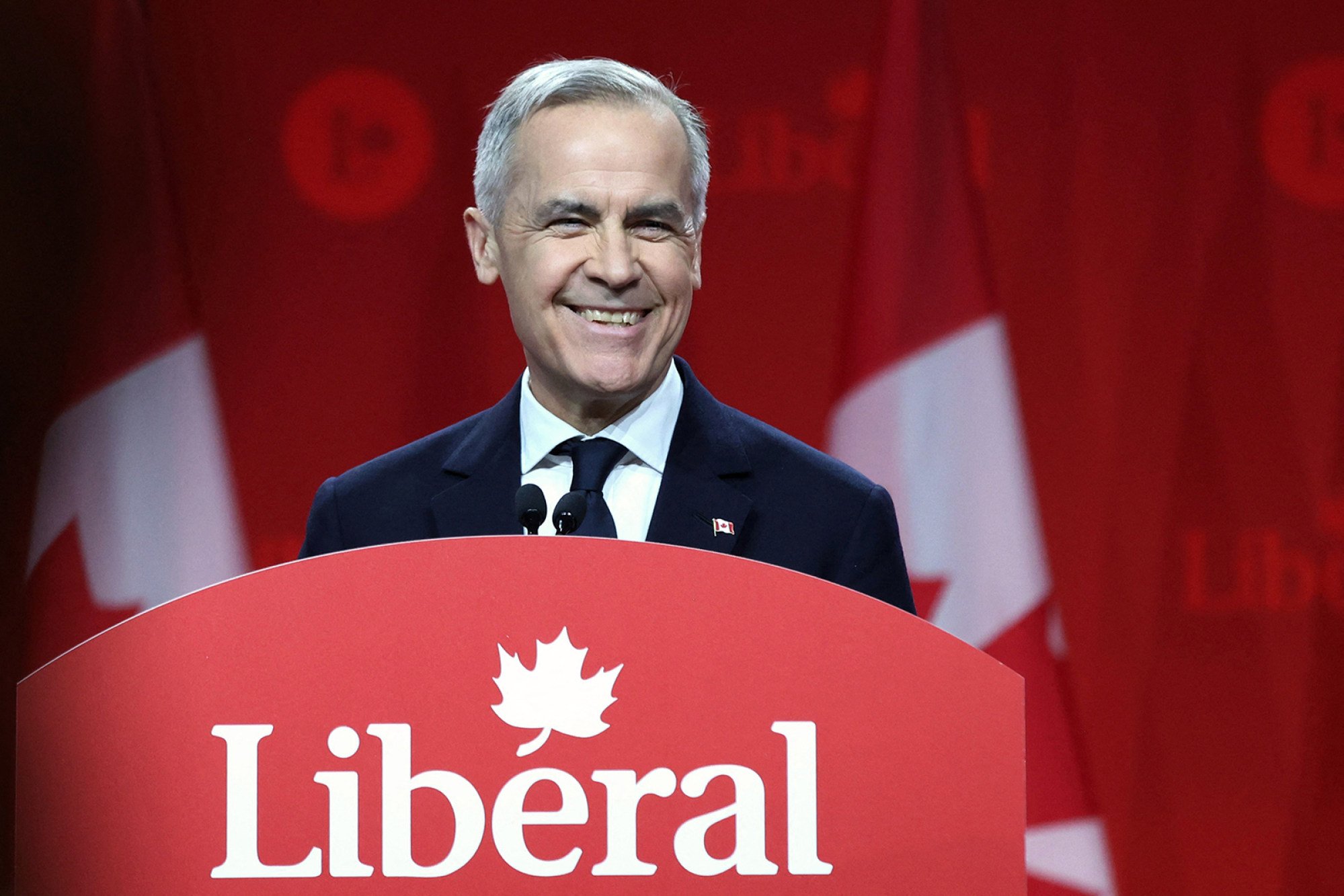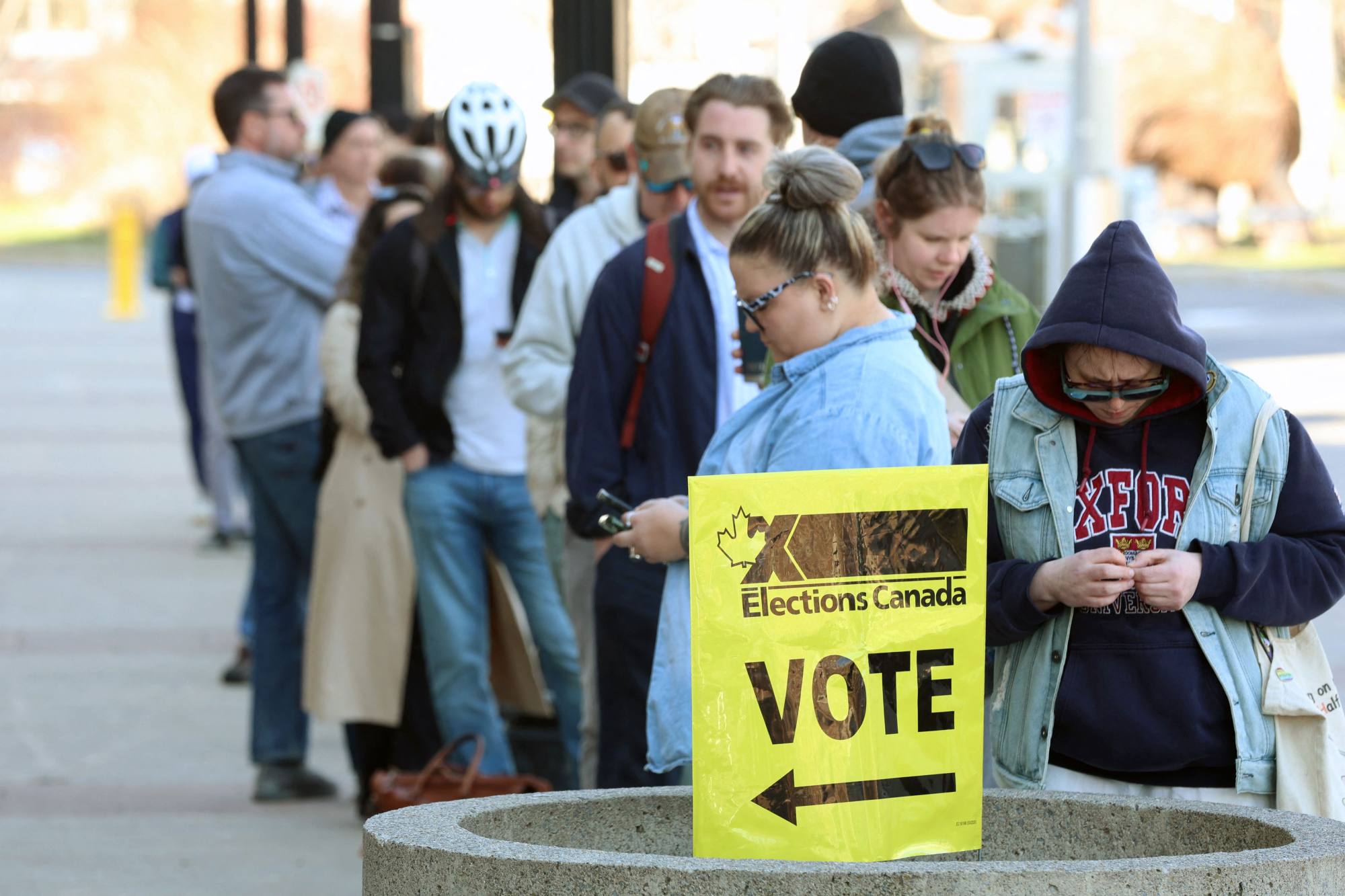Canada’s new government is likely to have more political latitude to work with China if tensions with America persist, analysts said, as Prime Minister Mark Carney’s Liberal Party secured a win in an election defined by voter hostility to US President Donald Trump’s trade war and aggressive rhetoric targeting Canada.
In a related vein, Canada’s appetite for political alignment with the US on China, its second-largest trading partner, is expected to wane, analysts added.
“There are real pressures [within Canada] for a realistic assessment of China possibilities in light of the fact that both countries are pushing back pretty hard against Mr. Trump’s tariffs,” said Paul Evans, professor emeritus at the University of British Columbia.
Do you have questions about the biggest topics and trends from around the world? Get the answers with SCMP Knowledge, our new platform of curated content with explainers, FAQs, analyses and infographics brought to you by our award-winning team.
What is “almost certain” to happen, Evans said, is Ottawa “re-emphasising the importance of commercial relations with China” and engaging Beijing in talks to remove trade barriers.
But issues like electric vehicles, information communications technology, critical minerals and other hi-tech sectors would remain more difficult, Evans said, unless it became clearer that Washington wanted to continue on its “collision course” with Canada.

Since taking office in January, Trump has not only slapped new tariffs across a wide swathe of Canadian goods – without exempting the country’s prized auto sector – but also made repeated suggestions that Canada should become America’s 51st state, most recently on election day.
Carney’s successful campaign featured a spirited fightback against Trump’s criticisms of Canada and a call to diversify the country’s economy away from the US.
In the end, his party took enough seats to form a minority government, marking a stunning comeback as just months ago the rival Conservative Party appeared assured of victory, benefiting from former Canadian prime minister and Liberal leader Justin Trudeau’s deep unpopularity.
Carney repeated his message in his victory speech late on Monday, stressing a need to strengthen ties with “reliable partners” in Europe and Asia in light of America’s “betrayal”.
“Our old relationship with the United States, a relationship based on steadily increasing integration is over,” Carney declared.
“When I sit down with President Trump, it will be to discuss the future economic and security relationship between two sovereign nations, and it will be with our full knowledge that we have many, many other options than the United States to build prosperity for all Canadians,” he continued.
Neither Carney nor the Liberal Party platform named China as a potential partner for expanding trade. Earlier this month, the former banker-turned-bank governor called China his country’s greatest security threat.
But analysts said it was clear that the Canadian leader had not closed the door on Beijing.
Evans deemed it notable that Carney used “reliable” in his victory speech to describe the kind of partner the country sought instead of “like-minded” as he had when campaigning.
At a press briefing in March, Carney made a point of portraying China as not sharing Canadian values.
But during the same event, other analysts noted, he said China was Canada’s second-largest trading partner and that “there’s certain activity that we could have” with the country.
That nuanced messaging is a “quiet signal” that he is open to exploring options with China, according to Jeff Mahon of Canada-based consulting firm StrategyCorp.
“China still is a sensitive issue in Canada and it’s not going to be a winning strategy for any political party to come out during a campaign and propose doing more with China,” he said.
But, Mahon continued, the deterioration in relations with the US has sparked a new debate within civil society, government and businesses about the need to trade more and resolve trade conflicts with China.
“It’s not so much about racing into China’s arms [or] deep integration,” he added. “It’s more about reconciling disputes.”
Ties between Canada and China have been strained in recent years, triggered by Beijing’s detention of two Canadians in 2018, days after Ottawa’s detention of Huawei Technologies executive Meng Wanzhou at Washington’s request. Over the same period, Canada and the US aligned more closely in their approach towards China.
Following America’s overtures, Canada imposed 100 tariffs on Chinese EVs and banned Huawei, a Chinese tech giant, from installing equipment in Canadian 5G networks.
And similar to the US, Canada established a foreign-agents registry to confront covert influence by countries like China and took a hit at Chinese-owned short-video app TikTok.
In March, as a response to Canada’s EV tariffs from last year, Beijing announced tariffs on more than US$2.6 billion worth of Canadian agricultural and food products.
For Carney, engaging with China is more of a necessity than an option, analysts said.
Trump’s unreliability as a negotiating partner “makes it very difficult for Canada to put all their eggs in that basket”, according to Philippe Rheault of the University of Alberta’s China Institute.
Rheault highlighted the trade “complementarity” between the Canadian and Chinese economies, describing it as a “bit higher” than with the EU, which is more of a direct competitor with Canada. He cited energy as a key area with room for growth.
Furthermore, China’s current tariffs were hurting Conservative strongholds in Canada’s Western provinces, he added, meaning that, even though Conservatives are typically more sceptical of engaging with Beijing they would likely take a more muted approach now that campaigning is over.
That said, any desire to engage with China could change based on how Trump engages with Canada in the next few months, analysts cautioned, noting that the US was still by far Canada’s largest trading partner, accounting for about 80 per cent of Canadian exports.

“No matter what, Canada is destined to have the United States as a close economic and security partner,” Mahon said.
Evans said he believed a minority government, in which Carney needs support from smaller parties to govern, would mean greater politicisation, potentially hindering constructive steps to work with China.
“Canada is more unified in its desire to push back against Trump, but it is not unified on where China fits into that picture,” he said.
What is certain, analysts said, is that Canada is now much less likely to bow to US pressure as it did with the EV tariffs and Huawei ban – “copycat” moves that Evans described as political overtures to Washington.
Beijing, for its part, has appeared eager to engage, with Wang Di, its ambassador to Ottawa, making clear in interviews that his country’s countermeasures against Canada were not permanent and that it was willing to look past comments made on the campaign trail.
Canadian premiers, like Alberta’s Danielle Smith and Saskatchewan’s Scott Moe, are also pushing for more engagement despite previously joining counter-China efforts in hopes of currying favour with the US.
“On balance, I would say the majority of premiers want to see relations improve,” said Mahon of the Ottawa-Beijing dynamic. “They want to see a nuanced approach that stays open for economic engagement.”
Signs have emerged that the Canadian people are warming to China as well.
A Nanos Research poll conducted from April 21 to April 23 revealed growing support within Canada for expanded trade with China.
Overall, 31 per cent of respondents said they thought Canada should expand its trade relationship with China, up from just seven per cent in June 2023 and five per cent in November 2022.
“‘Made in China’ sounds a lot better than ‘made in the US’ right now,” said Andrea Baldwin, a Halifax resident who said she cast a strategic vote for the Liberals – despite usually supporting more progressive parties – to block the Conservatives, whom she views as more aligned with Trump.
More from South China Morning Post:
- Carney’s win won’t break Canada-China deadlock, but Trump threat could ease trade ties
- Carney’s Liberals win Canadian election dominated by Trump, as Conservative’s Poilievre loses seat
- Canada’s Mark Carney: political newcomer who says he’s best in crisis
- On election day, Trump wants Canada to become ‘cherished’ 51st US state
For the latest news from the South China Morning Post download our mobile app. Copyright 2025.





